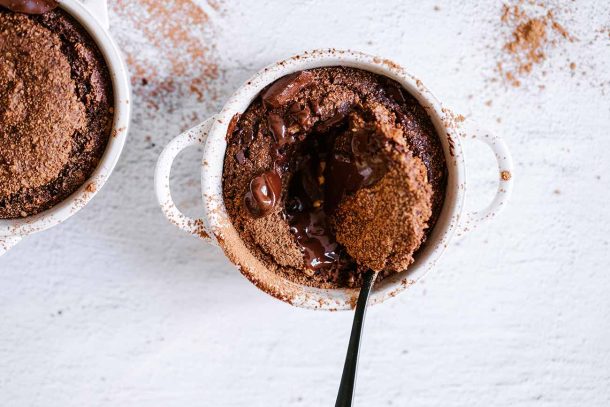It has been a hard time for a lot of us, and the Healthy Luxe team has been thinking about connecting with males, especially those close to us and wanting to be apart of the dialogue surrounding Mental Health. We called upon Male Mental Health Specialist and Psychologist Micah Boerma to give some insight.
Content warning ** This blog may contain topics that could be triggering. Contains conversations surrounding suicide and poor mental health.
With Psychologist Micah Boerma
Micah, can you tell us a bit about yourself and what makes you qualified to help us dive into the male brain?
The first thing people usually notice about me is I’m 6’5, I love a good coffee and the NRL. Other than that I have recently started playing netball, I’m currently tossing up whether I want a brown Border Collie or a Vizsla as a dog and trying to navigate different excuses for not going with my partner for beach swims during the winter. Slightly more importantly, I am a psychologist and work with young males in Sydney. I have previously worked in hospital, practice, and community settings, yet have gravitated to working with males recently and have since undertaken a PhD in young male mental health.
We’ll take votes for the puppy choice later but you said you were studying a PhD in males mental health, what have you found to be the most interesting aspect of male mental health that you have discovered in your studies?
I was alarmed to find out that 9 people complete suicide in Australia a day…a day. And that although females attempt to self-harm more than males, more males complete suicide. I also found it heartbreaking that although contemporary males are seeking professional help more than in the past, it is still significantly less than females, and that many males drop out of therapy prematurely. A male’s connection to the therapist is the most important factor in the effectiveness of therapy. Yet when interviewed, Australian males consistently state that therapists either do not understand them, or that they cannot connect with the therapist. This speaks to me that men want help, they want connection, they crave it, yet we have more work to do to meet their needs as friends, families, and professionals.


How can we positively contribute to men’s mental health as a society?
Rightly so, the status quo of masculinity has been criticised and examined. As a whole, this is a great outcome! It has led to social reform in which negative aspects of masculinity are not accepted, such as toxic masculinity. I think the next step of healthy, and positive social reform is for society to discern well between what masculine strivings are to be valued and encouraged, and what strivings are not to be encouraged. There are great aspects of masculinity, such as courage, daring, positive risk-taking, self-reliance, capacity to care, and teamwork. These are honourable strivings that should be encouraged, while discouraging selfish, toxic, or negative strivings. As Steve Biddulph says in his book Raising Boys, we want males with backbone AND heart.
If there was one important piece of information you could share about men’s mental health what would it be?
I do not think men are from Mars and women Venus. Males crave relationships and intimacy, not least from their families, partners, and friends. However, partners and family need to understand that connection may not come from the males in their life in the way that they may be used to. Males often show a sense of connection and care through how they serve others, involve others in their planning, get protective when they perceive someone they care about has been hurt, or when they attempt to communicate how they are feeling. This is so important to be aware of, as it primes others to allow space for these acts of caring to occur, and how to respond well to them.

Often as a society we stereotype others, either consciously or automatically. These stereotypes often come with elements of truth, but more typically are detrimental to the individual. How are Men stereotyped and to what extent is there truth within it, and what is the detriment?
I think the most harmful stereotype is that they are a lost cause, either in their ability to learn or change, or to seek support. I project this stereotype myself. Recently, a male friend of mine told me over a beer that he had started journaling his emotions as he was requested by his new counsellor to do so. My chatterbox mind went straight to: “why does he need to see a counsellor?”, “journaling his emotions won’t help him”. I noticed myself thinking these thoughts and feeling ashamed. I then had a sip of my ale and pivoted from those thoughts to a validating response. As I reflect upon this, I am convinced that I would not have had the same thoughts if a female friend were to discuss the same topic. This is just a small example of how we may biasedly view men. In general, in Australia, males kill themselves more, drop out of school earlier, fall behind in education more, receive disciplinary action more, are incarcerated more, abuse drugs and alcohol more, and seek help out the least. All of these consequences relate to how men externalise their inner experience, rather than internalise. What they do internalise however is how they have been socialised to not seek out help lest they look weak. I think if we truly want to help, we can start by challenging our view of men and their propensity and capacity to develop, heal, and work through the challenges in their life. This is crucial if we want to help them well.
If guys are wanting to improve their mental health what would you recommend as the first steps? Where can men seek support, what are their options?
The absolute first thing to do is understand that wanting to improve your mental health is not a sign of weakness. Near all professional sporting teams in the AFL, NRL, etc. have sports psychologists. Why? To improve on both areas of strength and weakness. Going to a therapist is not just for getting rid of the Black Dog (i.e., depression) or because it will please your partner, but because you want to get better at being assertive, learn how to cope with the stresses of life better, how to communicate with your partner well, or want to understand how your mood influences your behaviour. There are an endless range of areas that the right therapist for you can help you with. I suggest listening to a male psychology podcast or reading up on male-focused psychology resources, such as the BlokePsychology podcast with Veteran Gary Wilson or Head to Health for Men to start with just to get a sense of how working with a therapist can be useful for you.
Next, go see your GP. Ask them for a Mental Health Care Plan (i.e., a standardised plan to support you through the crazy times of 2020/2021) and some options for some different therapists. By getting the mental health care plan, you will be able to access up to 20 Medicare-reduced cost sessions per calendar year. Your GP may ask you some questions and explain who they would like to refer you to. They may either say:
- A Psychiatrist: Someone who has a medical degree, knows ‘talk-therapy’ and can prescribe medications.
- A Psychologist: Someone with post-graduate training in ‘talk-therapy’ and works with you on behavioural and emotional goals.
Next, follow up with the referral ASAP. The longer you let it wait, the more likely your mind will come up for excuses as to why you don’t need to go.

What would you say to guys that have tried seeking help, and not found it beneficial?
Seeking help is a process, yet it is incredibly worth it. Not all therapists are right for all people. If you have had a negative experience from trying to seek-help, I urge you to go to your GP and request further options of therapists to be referred to. Then, write a list of what you are wanting to get from therapy. Ask yourself questions like: “what would I like to get out of therapy?”, “what things would I find easier to do, or start doing that are difficult to do now?”,
what things would I like to do less of or stop doing that I find difficult to stop doing right now?”, and finally, “how would I know therapy was working for me?”. With these questions in mind, give potential therapists a call to get a feel for them. Most, if not all should be happy to have a conversation with you about themselves and how they work. If you don’t mesh well, that’s ok. Let them know and try another. Like I said, it is a process, just like getting toned at the gym or finessing your goal kicking, it takes time, but is worth it.
If we have brothers, fathers, partners or friends struggling with mental health how can we best support them?
Generally, men have been found to be much more ‘action-oriented’ and cognitively oriented. This means they are ‘doer’s and need to know why they are doing whatever they are doing. Men like structure, a clear map of what lies ahead, and a rationale. Most importantly, males open up most when ‘doing’ things rather than ‘talking’ things. If you are concerned about a male in your life, or want to discuss a challenging topic, do this when you are both engaging in an activity together, yet not focusing on each other, and not overly focused on the activity. This could be while walking, driving, etc. (sports like golf, bike riding, etc. also work!). Be clear with your concern, how you have noticed changes in his mood or your behaviour, your commitment to supporting him, and what you can do to assist if necessary. Overall, males want to be heard, have clear hope, autonomy to choose actions directed towards that hope, and to not feel shame or weakness for opening up.

How do you create a positive culture amongst your male friends, to encourage them with mental health?
Cliché, but true. Vulnerability is bravery in the context of friendship groups. Yet how males are reinforced in their vulnerability with other males is crucial. With my male friends, I hook onto moments of vulnerability or when they have the courage to want to discuss something difficult. Not shying away, being phased, or skipping over these moments can communicate that you are willing and wanting to listen. These moments gathered, collectively indicate to your male friends that they should feel no shame in opening up.
What do you do in your life to support your own mental health?
I strive to keep it simple. I journal daily, which I was terrible at to start with, even as a psychologist! However, starting with the male-focused Mindjournal, I was able to practice this skill. Now, I check in with what emotions I have experienced that day, some achievements and things I am grateful for, intentions and goals for the future, what I am nervous about, and then write about whatever comes to mind. Music and to-do list also really keep my mental health on track as well.







